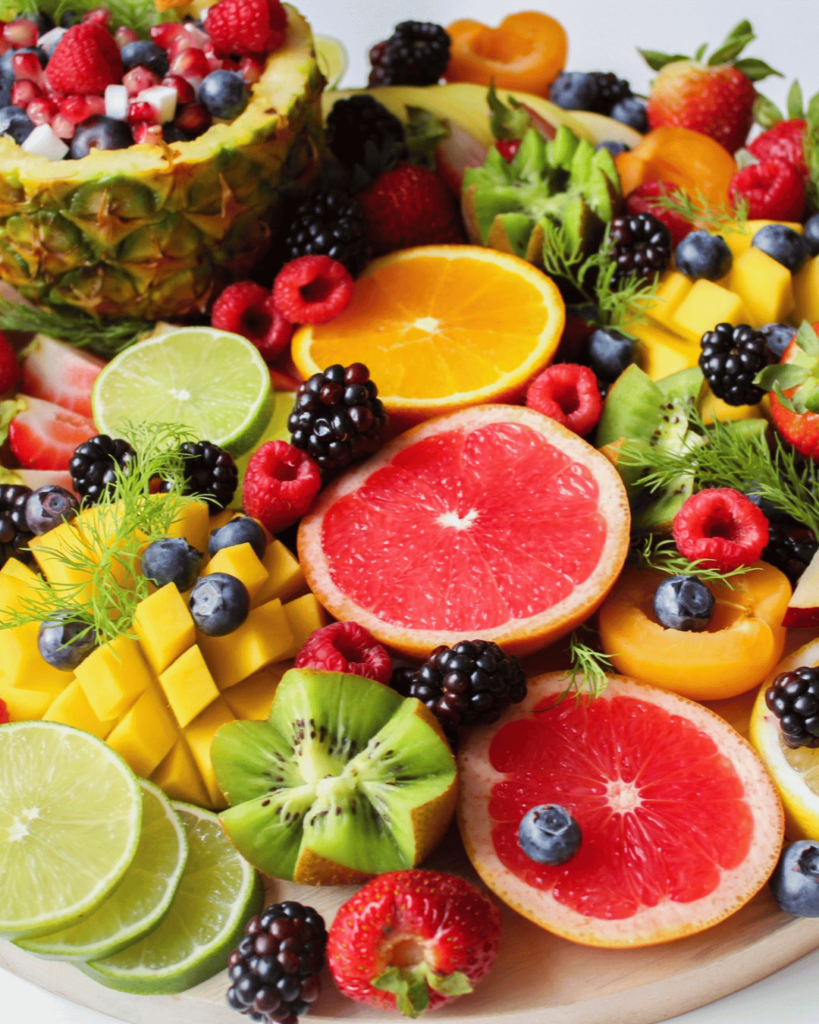From the point of view of Ayurveda, it is very important to understand that fruit consumption must observe some rules. This is mainly due to the fact that fruits are easily digestible foods and when eaten together with other foods, fruits sit in our digestive system awaiting the digestion of more complex foods. While the fruits sit in the stomach, they ferment and cause indigestion and discomforts such as flatulence, bloating, acidity and reflux.
This situation worsens when we constantly eat fruit inappropriately, as these toxins build up in the digestive system.
When we have good digestion and daily bowel movements, most of these toxins can be expelled, however, waste that is not expelled in sufficient time causes what we call AMA (unmetabolized toxins) in Ayurveda. Over time, this accumulation ends up causing deeper symptoms such as lethargy, body aches and illnesses.
As a rule, fruits should be consumed alone, that is, they should not be eaten together with other foods. The habit of eating fruit after lunch or with milky coffee in the morning is highly harmful to health, especially for people who naturally have slower digestion. The body needs different digestive enzymes to digest different classes of food, so when we consume a variety of foods and fruits in the same meal, the entire digestive process ends up suffering as a result of these complex chemical processes.
The ideal is to wait at least half an hour before or after eating fruit to eat other foods.
Cooked and dried fruits are an exception and can be mixed with other foods.
Another recommendation from Ayurveda is regarding the incompatibility between sweet and acidic fruits. Our beloved fruit salad is not recommended in Ayurveda.

To make it easier to understand, always remember to consume sweet fruits only with sweet fruits and acidic fruits only with acidic ones.
Citrus fruits: pineapple, acerola, plum, blackberry, raspberry, currant, kiwi, oranges, lime, lemon, strawberry, peach, tamarind, tangerine and grapes.
Non-acidic fruits: the sweetest (such as avocado, mango, pear, banana, melon, apple and coconut) and oilseeds (such as apricots, prunes and figs).
Now let’s talk about the melon! Ah, melon is a different case. It must be consumed alone, always! Never mix melon with other foods or fruits to avoid indigestion. Melon is a very easy to digest fruit and when consumed together with other fruits or foods, it ends up fermenting very quickly causing indigestion.
Another thing that I always recommend to my clients: between drinking fresh fruit juice and eating fruit, ALWAYS prefer to eat the fruit. It is much healthier to eat fruit with its fiber to facilitate digestion. Fruit eaten whole follows a different digestive path than its juice.
And finally, it is important to know that Ayurvedic recommendations are that fruits should be ingested between 9am and 4pm as during the day our digestion will always be more efficient than at night. Avoid eating fruit at night, especially if you have slow digestion, suffer from indigestion, asthma, skin problems such as eczema and psoriasis. And if you suffer from leaky bowels or irritable bowel syndrome, pay extra attention and do not consuming fruits at night.
A conscious consumption of fruits is essential for anyone who wants to maintain health and well-being.
Specially pre-diabetics and diabetics people who should always be careful with fruits and avoid fruit juices at all cost!
Do a little test of self-observation: stop eating fruits at night and notice how your mood and digestion will be better the next day. Don’t forget to come back here to tell me!
If you want to delve deeper into the subject and find out more, book a Discovery Call to discover how the wisdom of Ayurvedic medicine can help you regain your health and vitality!


